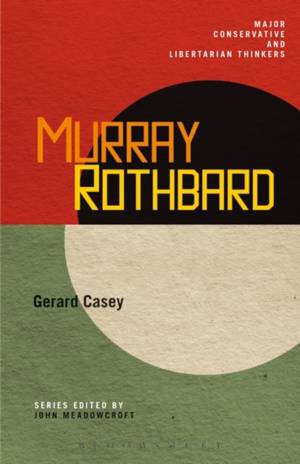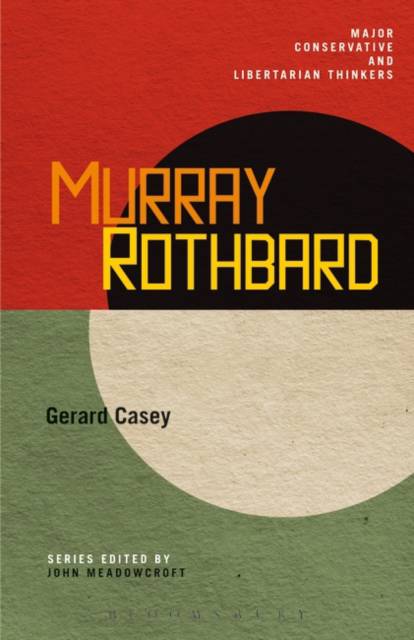
- Afhalen na 1 uur in een winkel met voorraad
- Gratis thuislevering in België vanaf € 30
- Ruim aanbod met 7 miljoen producten
- Afhalen na 1 uur in een winkel met voorraad
- Gratis thuislevering in België vanaf € 30
- Ruim aanbod met 7 miljoen producten
Omschrijving
Murray Rothbard (1926-1995) was an economist, historian, philosopher, and legal theoretician. His work was unified by a passionate and resolute commitment to a libertarianism that may be characterized as 'anarcho-capitalism' and which implied a belief that even the legal system may be provided privately without the need for a coercive collective authority. Hence, anarcho-capitalists envisage a society where the traditional role of government is wholly subsumed by private, profit-making enterprises and all social relationships are ultimately founded upon consent.
Rothbard's unique intellectual contribution was to build this system of thought from many pre-existing but previously disparate strands and to develop it to its logical conclusion. Rothbard's starting points were the notions of methodological individualism, natural rights theory, and individual self-ownership. He showed that if we wish these seriously then the justification for government falls away. According to Rothbard government can only be 'justified' if we abandon the notion that individuals have the right to determine what to do with their own bodies, a step he believed to be unconscionable.
Specificaties
Betrokkenen
- Auteur(s):
- Uitgeverij:
Inhoud
- Aantal bladzijden:
- 192
- Taal:
- Engels
- Reeks:
Eigenschappen
- Productcode (EAN):
- 9781441100795
- Verschijningsdatum:
- 1/08/2013
- Uitvoering:
- Paperback
- Formaat:
- Trade paperback (VS)
- Afmetingen:
- 137 mm x 213 mm
- Gewicht:
- 249 g

Alleen bij Standaard Boekhandel
Beoordelingen
We publiceren alleen reviews die voldoen aan de voorwaarden voor reviews. Bekijk onze voorwaarden voor reviews.








